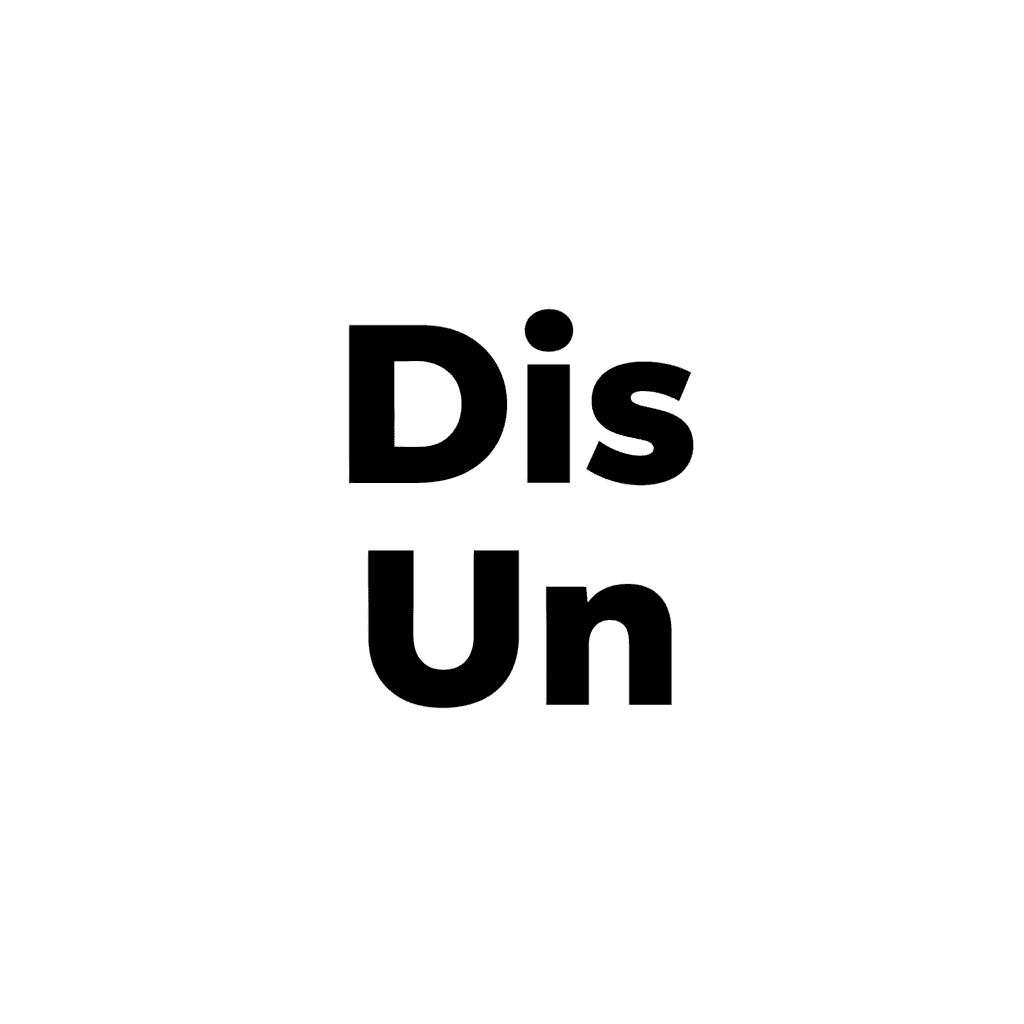Dis vs. Un: What’s the Difference?
 The prefixes dis- and un- both create negative or opposite meanings, but they’re used with different types of words and often express different kinds of opposites.
The prefixes dis- and un- both create negative or opposite meanings, but they’re used with different types of words and often express different kinds of opposites.
Here’s the simple rule:
- Un- → means “not.”
- Dis- → means “opposite of,” “reverse,” or “apart.”
Let’s break it down.
1. Un-: Meaning “Not”
Meaning
The prefix un- means “not” or “the opposite of.”
It’s used mainly with adjectives, nouns, and past participles to show a simple negative.
Examples (10 total)
- Unhappy – not happy.
- Unfair – not fair.
- Unkind – not kind.
- Uncertain – not certain.
- Uncomfortable – not comfortable.
- Unusual – not usual.
- Unclear – not clear.
- Unwanted – not wanted.
- Unnecessary – not necessary.
- Unable – not able.
🧠 Tip:
If you can add not in front of the word and it still makes sense, use un-.
Example: not fair → unfair.
2. Dis-: Meaning “Opposite,” “Reverse,” or “Apart”
Meaning
The prefix dis- adds the sense of reversal, removal, or being apart.
It’s often used with verbs to show that an action is being undone or reversed.
Examples (10 total)
- Disconnect – to separate or stop connecting.
- Disagree – to have a different opinion.
- Disappear – to go away or become invisible.
- Disapprove – to think something is wrong.
- Dislike – to not like.
- Disobey – to not follow rules.
- Disqualify – to make someone not allowed to compete.
- Disorganize – to mess up order.
- Disrespect – to not show respect.
- Discontinue – to stop doing something.
🧠 Tip:
If the word is about doing something, and you want to express undoing or reversing it, use dis-.
Example: connect → disconnect.
3. Quick Comparison Table
| Prefix | Meaning | Used With | Example | Sentence |
|---|---|---|---|---|
| un- | not | adjectives, nouns | unhappy | She was unhappy with the results. |
| dis- | opposite / reverse | verbs | disagree | I disagree with your opinion. |
4. How to Remember
👉 Un- → think “not.”
👉 Dis- → think “do the opposite.”
💡 Memory Trick:
“Un-” stops something from being true.
“Dis-” turns something in the opposite direction.
5. Common Mistakes
❌ He was dishappy about the news.
✅ He was unhappy about the news.
❌ Please unconnect the wires.
✅ Please disconnect the wires.
❌ She dislikes to be unfair.
✅ She dislikes unfair treatment.
6. Why They’re Confusing
Both prefixes show negativity, but their meanings aren’t always identical.
“Un-” just negates, while “dis-” often suggests active opposition or reversal.
AI tools like Humanizey can help detect these subtle differences to make your writing sound fluent and natural.
FAQs
1. Can “dis-” and “un-” ever mean the same thing?
Sometimes — for example, dislike and unlike both mean “not like,” but they’re used differently.
- I dislike carrots (a verb).
- This is unlike you (an adjective).
2. Are there words that take both prefixes?
Yes, but their meanings can change:
- Disorganized = messy.
- Unorganized = not structured (but less negative).
3. Can I use “un-” with verbs?
Rarely. Most verbs use “dis-.”
Examples: disconnect, disagree, disapprove.
4. Which prefix is more common?
Un- is more common overall, especially with adjectives.
Practice: Choose the Correct Prefix (“Dis-” or “Un-”)
(Answers are listed at the end.)
- She was ___happy about the decision.
- Please ___connect the charger before using it.
- I completely ___agree with your point.
- This task seems ___necessary.
- He felt ___comfortable during the meeting.
- The company decided to ___continue the old policy.
- They ___like spicy food.
- She is ___certain about her choice.
- He was ___qualified for the competition.
- The students who ___obeyed the rules were punished.
Answers
- unhappy
- disconnect
- disagree
- unnecessary
- uncomfortable
- discontinue
- dislike
- uncertain
- disqualified
- disobeyed
